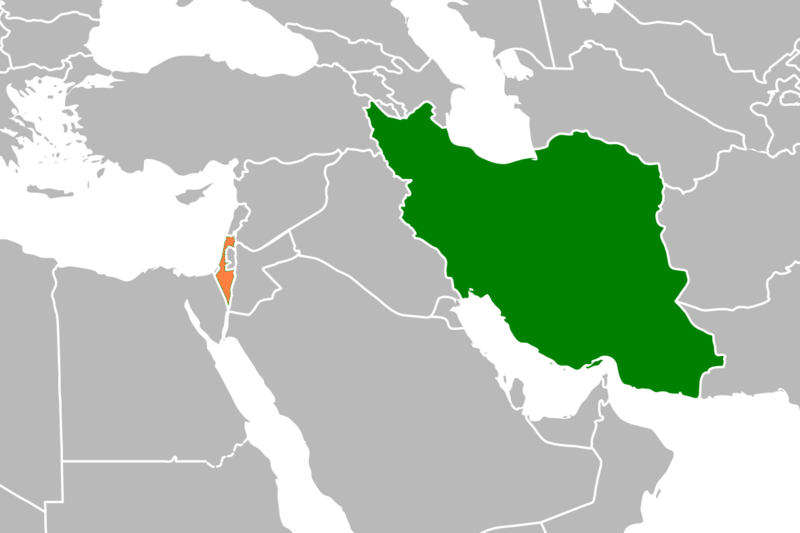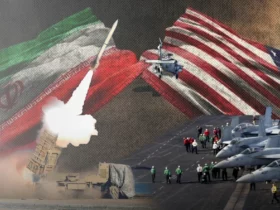By Tehran Tapdigov
After the killing of Hamas leader Ismail Haniyeh in Iran, the situation between Iran and Israel was expected to become more tense. Iran has officially declared that it will take strict retaliatory measures. However, after the killing of the Hamas leader by Israel in Tehran, Iran has not yet taken serious measures.
Though having repeatedly threatened Israel, why can Iran not respond?
Commenting on the topic, Iranian political scientist Ahmad Habibi noted that a quick or aggressive response may not be useful for Iran at the moment.
Iran’s possible calculations
Why hasn’t Iran responded to Israel yet?
Iran’s decision not to immediately respond to Israel can be attributed to several layers of strategic and geopolitical considerations. At the forefront is the complex and often delicate balance that Iran maintains within the region and on the global stage. Responding too quickly or aggressively could escalate tensions in a manner that might not be beneficial for Iran at this moment.
One key factor could be Iran’s internal political dynamics. The country is led by a regime that is highly strategic in its actions, often preferring to calculate every move with an eye on long-term outcomes rather than short-term gains. Iran’s leadership, particularly the Supreme Leader Ayatollah Ali Khamenei, has always been cautious about direct military engagement, especially with a state like Israel, which has powerful allies including the United States.
Additionally, Iran might be considering the broader implications of its response on its ongoing diplomatic and economic engagements. The country is under intense international scrutiny, especially regarding its nuclear program and its involvement in various regional conflicts. A rash response could derail any potential negotiations or exacerbate the already stringent sanctions’ regime imposed by Western nations. It’s possible that Iran is taking time to gauge the international community’s reaction, especially from major players like Russia and China, before deciding on its next move.
Another layer to consider is the state of Iran’s military and economic capacity. The Iranian economy has been severely weakened by sanctions, and its military capabilities, while substantial, might not be prepared for a full-scale confrontation with Israel. Iran might be using this time to strengthen its alliances with regional proxies such as Hezbollah in Lebanon or Shiite militias in Iraq and Syria, potentially preparing for a more distributed or asymmetric response rather than a direct confrontation.
Moreover, Iran might also be considering non-military responses, such as cyberattacks or economic pressures, which could be seen as less escalating but still impactful. The Iranian regime has a history of engaging in cyber warfare, and this might be a more palatable option at this juncture. Cyber operations can provide a means of retaliation that doesn’t immediately lead to a full-scale military conflict, but still sends a strong message to Israel and the international community.
Lastly, the psychological aspect cannot be overlooked. Iran might be leveraging this delay as a form of psychological warfare, creating uncertainty and tension not just in Israel but across the region. By not responding immediately, Iran leaves Israel and its allies in a state of constant vigilance, potentially wearing down their resources and morale over time.
Should we not expect a response from Iran?
While the current lack of action from Iran might suggest that a response is not imminent, it would be premature to conclude that Iran will not respond at all. Historically, Iran has often preferred to take its time, choosing the moment that it deems most advantageous to strike back. Therefore, a lack of immediate retaliation should not be interpreted as an indication that Iran has opted out of responding altogether.
Iran’s approach to conflict and retaliation is deeply rooted in its strategic culture, which favors asymmetric warfare, indirect confrontation, and the use of proxies. This means that Iran might choose to respond through one of its allied groups, such as Hezbollah in Lebanon, the Houthis in Yemen, or various militias in Iraq and Syria. By using these proxies, Iran can strike at Israel’s interests without directly involving itself, thus minimizing the risk of a full-scale war.
Furthermore, Iran’s leadership might be waiting for the right geopolitical climate to deliver a response that would be most effective. For instance, Iran could be waiting for a moment when Israel is more diplomatically isolated or when global attention is diverted by another crisis.
This kind of timing would allow Iran to maximize the impact of its actions while minimizing the risks.
Another possibility is that Iran might opt for a non-military response, such as leveraging its influence in international organizations or using economic measures to retaliate. For example, Iran could seek to influence OPEC oil production decisions to harm Israel’s economic interests or could engage in diplomatic efforts to isolate Israel further on the global stage.
It is also worth considering that Iran might be preparing for a long-term strategy rather than an immediate response. This could involve building up its military capabilities, strengthening alliances with other anti-Israel factions, and waiting for a more opportune time to act. This approach would be consistent with Iran’s historical behavior, where patience and long-term planning are key components of its strategic outlook.
Broader international diplomatic context of Iran
How does this situation impact Iran’s image?
The impact of Iran’s lack of an immediate response on its image, both domestically and internationally, is complex and multifaceted. On one hand, the delay in responding could be seen as a calculated move, displaying strategic patience and a preference for measured actions over rash decisions. On the other hand, it could also be perceived as a sign of weakness, hesitation, or even fear, particularly by those who expect Iran to take a hard-line stance against Israel.
Domestically, Iran’s image among its citizens and supporters of the regime could be affected by this delay. The Iranian regime has built much of its legitimacy on its resistance to Israel and its stance as a defender of the oppressed in the region, particularly the Palestinians. A perceived failure to respond forcefully to Israeli actions could lead to disillusionment among some segments of the population, especially those who are more hard-line in their views. This could potentially fuel internal dissent or weaken the regime’s standing among its core supporters.
However, it’s also possible that many Iranians, particularly those who are weary of conflict and the economic hardships that come with it, might view the lack of immediate retaliation as a sign of prudence. For a population that has endured years of economic sanctions and isolation, avoiding a direct confrontation with Israel might be seen as a way to prevent further suffering. This could bolster the regime’s image as a careful and thoughtful leadership that prioritizes the well-being of its people over reckless adventurism.
Internationally, the situation is equally nuanced. Among Iran’s allies and those sympathetic to its cause, the delay might be seen as a tactical move, one that reflects a deep understanding of the geopolitical landscape. These groups might respect Iran’s decision to avoid immediate escalation, recognizing that a well-timed response could be more effective in the long run.
On the flip side, among Iran’s adversaries and critics, the lack of an immediate response could be interpreted as a sign of vulnerability. It could embolden Israel and its allies, encouraging them to continue with actions that challenge Iran’s influence in the region. This could lead to a further erosion of Iran’s standing as a regional power, potentially weakening its ability to project strength and influence.
Moreover, the global perception of Iran’s image might be influenced by how other international actors, particularly major powers like the United States, Russia, and China react to the situation. If these countries perceive Iran’s delay as a sign of restraint and a desire to avoid conflict, it could lead to diplomatic opportunities for Iran. Conversely, if they see it as a sign of weakness, it could result in increased pressure and isolation.

















Leave a Reply